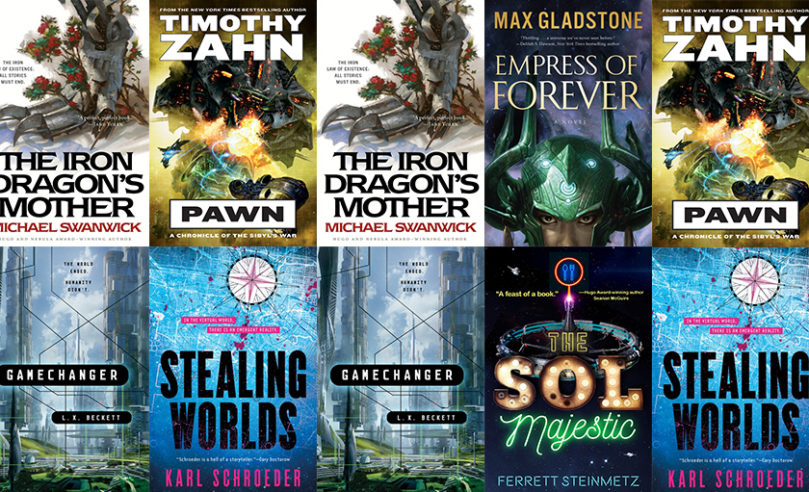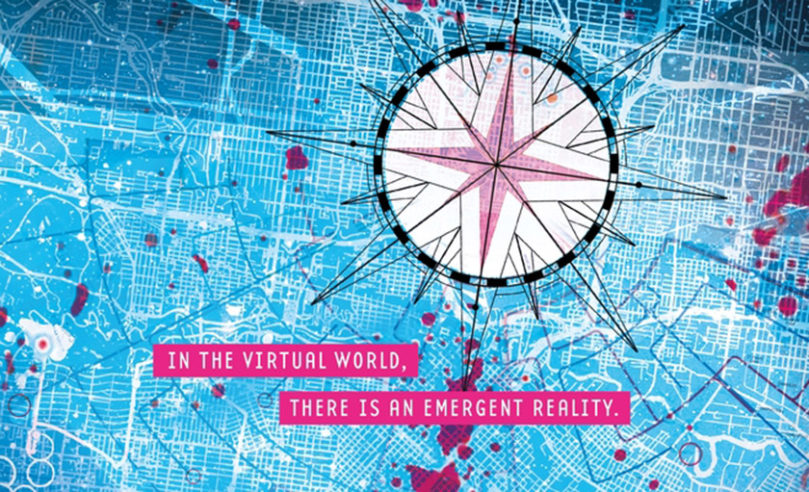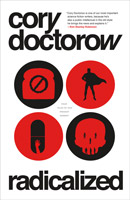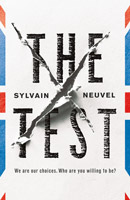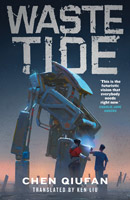opens in a new window opens in a new window
opens in a new window opens in a new window
opens in a new window opens in a new window
opens in a new window opens in a new window
opens in a new window
opens in a new window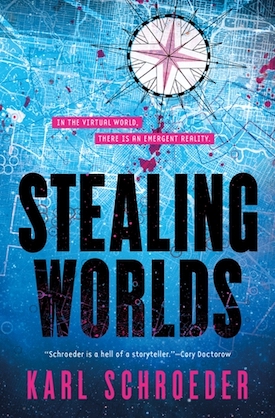 From Karl Schroeder, author of Lockstep, comes the near-future, science fiction, hacker’s heist, Stealing Worlds.
From Karl Schroeder, author of Lockstep, comes the near-future, science fiction, hacker’s heist, Stealing Worlds.
Sura Neelin is on the run from her creditors, from her past, and her father’s murderers. She can’t get a job, she can’t get a place to live, she can’t even walk down the street: the total surveillance society that is mid-21st century America means that every camera and every pair of smart glasses is her enemy.
But Sura might have a chance in the alternate reality of the games. People can disappear in the LARP game worlds, into the alternate economy of Notchcoin and blockchains. The people who build the games also program the surveillance networks—she just needs an introduction, and the skills to play.
Turns out, she has very valuable skills, and some very surprising friends.
opens in a new windowStealing Worlds by Karl Schroeder is on sale June 18th.
1
On a warm night in June, Sura Neelin walks past the homes where her friends once lived, past her old high school and the corner store where she used to buy Popsicles. She turns down a gravel-surfaced alley canopied by black trees, and before she’s ready she’s standing in the backyard of her old house. She hesitates under its shadow, flashlight in one gloved hand, screwdriver in the other.
The cicadas are winding down, the sounds of traffic and police drones not so frequent this far from the main roads. She enters the backyard through the same old rickety fence that she used to use as a chalkboard. What light there is comes from neighbors’ windows peeking from behind silhouetted branches. She can smell but not see the grass, yet this yard is where she learned to walk, and her steps are sure as she makes her way to the back porch.
The screen door didn’t have a lock on it when she lived here, and it doesn’t now. It eases open and she pokes her head around the doorjamb. Right over there is where Nick McAllister kissed her, when they were scrunched hip to hip in Grandma’s orange beanbag chair. It had been hot weather like this. Dad used to keep cartons of beer stacked next to the window; Mom didn’t want the stuff cluttering up the kitchen.
There’s an Ikea shelving unit where the beanbag once sprawled. Sura straightens up, realizing she’s still got her feet on the porch steps. Afraid to commit. With a muttered curse she forces herself on; she knows where the boards creak on this floor, so she zigzags to the brick-framed kitchen door and puts out her hand to feel for its lock.
It’s been changed. But that’s what the screwdriver is for.
She jams it into the keyhole and bumps it with a practiced hand. The knob turns, she eases the back door open, and steps inside.
It smells like home.
And just like that she’s hit with a wave of memories from the first months after Mom died. Dad flew home, and they spent whole days cooking just to keep each other company. Those images lead to others, of birthday parties, late-night snacks, and that day the water sprayed out of the faucet and she couldn’t stop it, had to phone Dad and he’d told her, annoyed, about the cut-off valve under the sink.
She has no excuse for being here. She’s here on a rumor. Like as not she’ll get caught and things will get infinitely worse for her; but how much worse? They’re bad, sure, but bad like everybody’s life is bad. Debt bad. No future bad. Broken promises and bitterness bad. She can put up with that. She doesn’t know for certain that she’ll die if she walks away right now.
Sura takes a ragged breath, looks around herself, and sees that the kitchen’s been repainted. Even in the dark she can tell that the shade of sky blue is relentless. Mom would have hated it.
One more deep breath, measured now, and she moves to the dining room.
Everything was fine this morning.—Fine, that is, in the sense of only being fucked up in the usual ways. At ten o’clock Sura was out riding her bike, because jittery nerves and annoyance at being let go from yet another short-term contract had her pacing the kitchen. She was trying not to look at the bills—those made of paper that are piled on the table, and the many imminent cancellation notices piled up in her inbox.
She reassured herself that everybody is in this position. It’s even true, at least for those of her old friends who’ll still talk to her. The economy is roaring ahead, growth is up, and the GDP has never been higher; it’s just that nobody’s getting by.
The white slab of warehouse which was Sura’s last shit job is a couple of miles southwest of her apartment. “Forward warehousing” has finally come to Dayton: all round the city dozens of cars have rented out their trunks, which contain cigars and scotch and stuff. Every now and then one of these trunks will pop open, seemingly at random and often while the car is driving, and a drone carrying a bottle of Talisker’s or Oban will zip off at right angles, delivering the package to a waiting customer and justifying the company promise: Five minutes or it’s free.
Of course, the trunks need to be restocked, from slower drones that originate here. And while the public face of the operation is relentlessly high-tech, the warehouse is staffed with minimum-wage humans, mostly immigrants and kids fresh out of college, who are run off their feet. Sura wore a tracker badge because the fetchers’ movements are optimized to the second, like the drones’. If she stopped walking for a minute, they docked her pay. Longer than a minute and, well … here she was.
The bike took her through Hillcrest, a neighborhood she’s known since she was a kid. Everything looked fine on the surface, though with the city’s aggressive deroading program in full swing, half the streets are blocked off. Their asphalt has been torn up and grass and trees planted in its place. Still, the houses she passed seemed well-kept and delivery drones came and went. There’s money somewhere, for somebody.
She glided along winding paths past the beautiful homes, peeking through living room windows while calculating how far that last paycheck would get her and wondering what came next. The last of Mom’s savings have run out; her buffer is gone. Nobody who knows her will let her couch surf. Time to go online and hunt for some stranger who needs a roommate.
It’s six years since Mom died. The echoes of that still chase her, in the form of crushing debt and memories of Mom’s long slow decline. Toward the end Sura’s whole waking life was consumed with taking care of her. The trauma’s still with her but she’d go back to that time in a heartbeat because, despite the awfulness and the sense of them being abandoned both by the world and by Dad, her life had meaning. The tightly structured days, the narrow focus, the complete impossibility of going out; it all hurt. So many movies missed. Yet she’d kept Mom’s music playing for her right up until the last day.
She still listens to the old tunes, but the life behind them is gone.
The warehouse job felt like her last chance at a lot of things—income, purpose, some kind of dignity; with it blown sky-high, a long, dull period in her life seems to be ending. She’d put her head down and peddled harder but the anxieties built and built, chasing her like leaves in her wake. She wasn’t going to make it. In desperation, for the first time since Mom died Sura gave herself permission to reach back to a coping mechanism from before that time. She’d had a trick for dealing with shit once, an effective one. It’s been years since she used it because in the old days, it usually ended with her doing a B&E. Mom never knew, and in her last days, Sura had promised never to disappoint her. Still …
She calls this maneuver the fuck-you.
The bills, the dead-end jobs, the nervous exhaustion of living in a country that’s in a state of perpetual, low-grade civil war—all of these things nag and peck at her, all day, every day. Really, there was only one thing to say to all of it.
Fuck you.
She smiled. Yes, this is exactly what she needed.
Money problems: fuck you.
Nobody likes you: well, fuck you.
Dad’s an asshole, and Mom is dead: then, fuck you.
The rush of anger was exhilarating—but it’s just the primer. Now some old neglected engine caught, a power she’d built for herself as a kid in those many evenings spent in her room listening to Mom and Dad fight. Cycling down these familiar streets, canopied by green and awash in the roar of the cicadas, Sura shouted screw you to all the baggage of her life and kicked it overboard.
Her imagination broke free at last. Lifted by fantasy, she pictured herself rising to visit the treetops. She felt the tentative touch of millions of leaves as she turned and gyred above the maze. She looked down upon herself and from here it was plain she was being observed, but not by the neighborhood-watch drones. The cicadas were taking note of her, and the squirrels, skunks nesting under the porches, raccoons in the garages. Even the trees must feel her presence, as they breathed her exhalations. None were spies for some dark extractive power. Rather, she moved in the embrace of her neighbors and friends, a family she’d been born into.
She glimpsed it then, the web of exchanges holding this family together. True, the flowers traded their nectar, there were markets in the bushes, but there were also gifts being bestowed, such as the oxygen sighing from the leaves, the flows of nutrients in the ground as older trees gave of themselves to nurture the younger. Light flooding everything, heat making the air tremble, and everywhere little leaf factories banging on incoming molecules with their trip hammers, infinitesimal welders on microscopic scaffolds throwing sparks as mitochondrial cranes lofted newly minted proteins to tiny workers assembling new cells. All these trillions of projects ran independently yet were somehow nested in harmonious circles, invisible to the old man mowing his lawn, to the worried drivers, the delivery guy hauling boxes out of the back of his van. A secret known only to her.
On the bike path, at the eye of this hurricane of motion and industry, a small woman, earbuds in, sped along to a soundtrack of digital beats and pygmy chants.
For a few minutes, she was actually and miraculously herself. She could do anything, and maybe she should … And then her phone rang.
She had her smart glasses on, so she replied in hands-free mode. “Hello?”
“Sura, thank God I got through. Listen, it’s me, Marjorie.”
Marj. The fuck-you collapsed. The bike wobbled. “What do you want?” She’d spoken to Dad’s new piece exactly twice since he and Mom split up. Why the hell was she calling now?
“Sura, I know you’ve got—I don’t know how to say—Listen. Have you received any packages lately? From your dad?”
“What? No, what?”
“Okay. Um. Sura.” She heard Marj take a sharp, half-caught breath. “He’s dead, Sura.
“Your father’s been murdered. And the people who did it may be after you, too.”
Jim said if something like this happened, to look in that spot you signed, Marjorie had told her. He said you’ll know what he means.
Now, she crosses her old dining room in three quick steps. She’s all focus and knows exactly where she’s going. Whatever furniture these new homeowners may have put in the way, she can push it aside, she can even smash things if she has to because looting this place is literally only going to take a second.
She was eleven when they renovated the house. Dad brought her in one day, and she was fascinated to see how the interior walls had turned skeletal. The living room’s outer wall was now exposed brick.
As she traced its roughness with a finger, Dad grinned and pulled a Sharpie out of his pocket. “Why don’t you sign it?” he said. “They’ll be putting new drywall up tomorrow. Nobody’ll ever know it’s there. Nobody but you and me.”
SURA NEELIN she wrote on the brick. The rest of the gutted interior barely registered on her. She had signed her house!
She has her phone out and ready, the NFC reader app glowing on its face. Dad used to tease her by asking if she remembered where her signature was. She was always proud to show him: just step into the living room and turn right, go to the wall and slide the phone along it at the height of her solar plexus …
She steps in and turns—and there are bookshelves on the wall.
Sura just stares at them. Dad had been so clever, after all: how could he hide a file storage chip so nobody can ever find it no matter how many drawers they rip out or light fixtures they unscrew, yet have the information literally at your fingertips? Simply slap an NFC sticker on the back of the drywall, right where his daughter had signed the bricks it would rest against. Snap snap snap said the nailgun, and then the new wall was up. The NFC tag was Dad’s secret stash, so secret that she was nineteen before he told her about it—and by that time, the house was sold.
The new owners haven’t gutted the place the way the Neelins did. And why shouldn’t they screw two sets of bookshelves into the studs? They don’t know that this was the wall the couch was against, the one Mom spent her last weeks on as the cancer killed her. The shelves are about three feet tall and start about three and a half feet up from the floor. Hipshot in a slab of streetlight that leans in from the front window, Sura contemplates the steps she’s going to have to take to get through the one that’s covering her signature.
She pushes back on the memories of kneeling by the couch, mashing Mom’s food for her; Think, think. With luck, the shelves are just open frames with the drywall exposed behind them … She pulls out some Nora Roberts hardcovers and puts her hand out to find faux-wood particleboard where there should be wall. The shelf’s got a back. Hopefully that’s not too thick, you can only read an NFC from an inch or two away, and the drywall drastically thins the signal. She slides the phone around for a while, but the backing of the shelf must be blocking it entirely. She can’t be sure she’s even swiping the phone over the right spot.
Shoulders hunched, feeling the ghosts now and the presence of sleepers in the master bedroom directly overhead, she begins pulling books with trembling fingers. She stacks them carefully but quickly until the shelving unit is empty, then feels for the heavy screws that must hold it up. There they are. Lucky she still has her screwdriver.
The first screw doesn’t pretend to budge. “Damn fuck shit motherfucker cunt shit…” She lacerates her palms twisting, but it’s no use. The whole plan’s gone south, she should bolt out the back, find some alternative, except she can’t because Dad’s sins are being visited upon her, and if it were just the cops coming after her (and her sitting calmly on her couch, arms held up for the handcuffs) then that would be okay. It won’t be the police or the FBI, though. The FBI care, but they don’t care, not to the point of murder. According to Marj, the people who do care aren’t going to be nice about asking for whatever it is Dad put behind this wall.
For the very first time she knows that if somebody comes down the stairs, bleary-eyed and demanding to know what’s going on, she’s going to have to hurt them. She can’t leave this spot, is trapped to run as long as it takes in a tight circle around this one damned screw—
Leaning in, teeth grinding and her whole body a ramrod, she finally feels it give. She keeps folding herself around it, as with a series of groans and creaks the thing loosens and comes out.
That was the top left one. A little clear voice in her head comments that she should have begun at the bottom.
Fine fine, whatever, she goes for those screws. The lower right one is easy, and that leaves the lower left. As she starts on it, she hears footsteps on the stairs.
It really, really doesn’t matter at this point. She keeps cricking her hands around the screwdriver.
“Who are you?”
It’s a little girl’s voice.
Sura glances back. There’s a silhouette on the stairs.
“I’m just fixing the bookshelf,” she whispers. “Go back to bed.”
“Oh. Okay.” The figure turns and starts back up.
Cindy-Lou Who, thinks Sura and she nearly laughs out loud. The third screw pops out and the shelf becomes a pendulum. She grabs her phone off The Cambridge History of China and slides it along the wall, swinging the shelf this way and that to get at the smooth white surface behind.
Ping.
Now it’s ballet time but with no soundtrack she can imagine; somehow Sura’s turning on her toes as she threads the stacks of books, then she pads through the dining room, the unfamiliar kitchen and porch. She’s unreeling her whole life, bye-bye Momma, bye-bye Dad and grief-cooking, bye-bye Nick and your kiss, and she’s on the lawn pocketing an unknown legacy, and walking raccoon roads under the darkest trees and burnt-out streetlights, out of a neighborhood that’s no longer hers.
Copyright © 2019 by Karl Schroeder
Order Your Copy:
opens in a new window opens in a new window
opens in a new window opens in a new window
opens in a new window opens in a new window
opens in a new window opens in a new window
opens in a new window
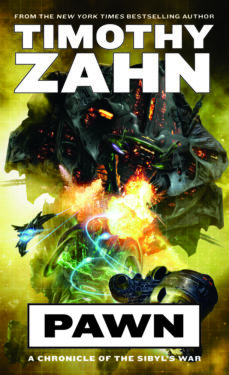 Pawn by Timothy Zahn
Pawn by Timothy Zahn opens in a new window
opens in a new window opens in a new window
opens in a new window opens in a new window
opens in a new window opens in a new window
opens in a new window opens in a new window
opens in a new window
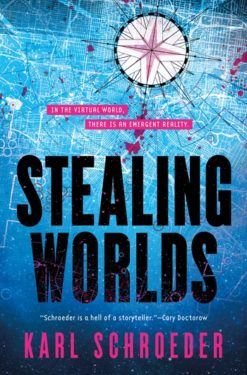 Stealing Worlds by Karl Schroeder
Stealing Worlds by Karl Schroeder opens in a new window
opens in a new window opens in a new window
opens in a new window opens in a new window
opens in a new window opens in a new window
opens in a new window opens in a new window
opens in a new window
 The Iron Dragon’s Mother by Michael Swanwick
The Iron Dragon’s Mother by Michael Swanwick opens in a new window
opens in a new window opens in a new window
opens in a new window opens in a new window
opens in a new window opens in a new window opens in a new window
opens in a new window opens in a new window
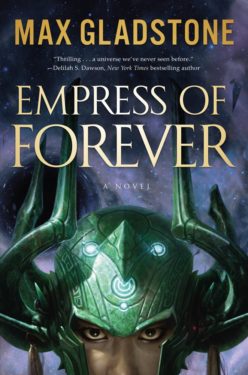 Empress of Forever by Max Gladstone
Empress of Forever by Max Gladstone opens in a new window
opens in a new window opens in a new window
opens in a new window opens in a new window
opens in a new window opens in a new window opens in a new window
opens in a new window opens in a new window
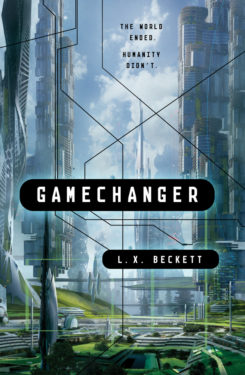 by L. X. Beckett
by L. X. Beckett opens in a new window
opens in a new window opens in a new window
opens in a new window opens in a new window
opens in a new window opens in a new window opens in a new window
opens in a new window opens in a new window
 The Sol Majestic by Ferrett Steinmetz
The Sol Majestic by Ferrett Steinmetz opens in a new window
opens in a new window opens in a new window
opens in a new window opens in a new window
opens in a new window opens in a new window opens in a new window
opens in a new window opens in a new window

